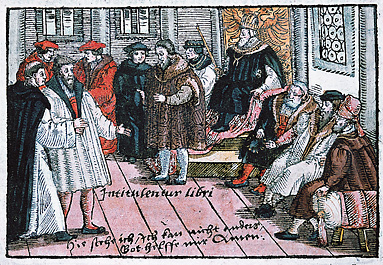Augsburg << AWGZ burg or OWKS boork >> Confession was a short summary of the religious teachings of Martin Luther. It was written mainly by Philipp Melanchthon, Luther’s chief associate in starting and leading the Protestant Reformation. The Confession was prepared in 1530 for Charles V, the Holy Roman emperor. It was named for Augsburg, Germany, the scene of a diet (meeting) called by Charles to end religious divisions within the empire.

Melanchthon wrote the Confession to prove that Lutherans supported the historic tradition of the Christian church. He tried to compromise on some controversial issues, hoping for the reunification of Christendom. Luther was not permitted to attend the diet. He admired the Confession for “treading lightly” over disputed issues but insisted that no more concessions be made. The Confession was too Protestant in tone for the emperor, and he rejected it. Melanchthon continued to make changes to the Confession over the years, and conservative Lutherans objected to the altered versions. The original version became the basic statement of faith of the Lutheran Church.
See also Luther, Martin ; Melanchthon, Philipp .
